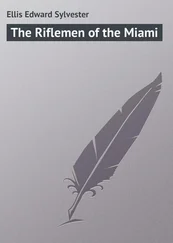Edward Ellis - A Waif of the Mountains
Здесь есть возможность читать онлайн «Edward Ellis - A Waif of the Mountains» — ознакомительный отрывок электронной книги совершенно бесплатно, а после прочтения отрывка купить полную версию. В некоторых случаях можно слушать аудио, скачать через торрент в формате fb2 и присутствует краткое содержание. Жанр: foreign_prose, foreign_children, на английском языке. Описание произведения, (предисловие) а так же отзывы посетителей доступны на портале библиотеки ЛибКат.
- Название:A Waif of the Mountains
- Автор:
- Жанр:
- Год:неизвестен
- ISBN:нет данных
- Рейтинг книги:4 / 5. Голосов: 1
-
Избранное:Добавить в избранное
- Отзывы:
-
Ваша оценка:
- 80
- 1
- 2
- 3
- 4
- 5
A Waif of the Mountains: краткое содержание, описание и аннотация
Предлагаем к чтению аннотацию, описание, краткое содержание или предисловие (зависит от того, что написал сам автор книги «A Waif of the Mountains»). Если вы не нашли необходимую информацию о книге — напишите в комментариях, мы постараемся отыскать её.
A Waif of the Mountains — читать онлайн ознакомительный отрывок
Ниже представлен текст книги, разбитый по страницам. Система сохранения места последней прочитанной страницы, позволяет с удобством читать онлайн бесплатно книгу «A Waif of the Mountains», без необходимости каждый раз заново искать на чём Вы остановились. Поставьте закладку, и сможете в любой момент перейти на страницу, на которой закончили чтение.
Интервал:
Закладка:
Standing to one side of his artistic work, like a teacher of the olden time, the parson, with a long, trimmed branch in his hand, pointed at the different letters in turn and patiently waited for his little pupil to pronounce their names.
It never would have done to make the child keep her feet like an ordinary mortal. With great labor, three of the miners had carried a stone of considerable size to the spot, which served her as a seat, while receiving instruction. It is true that she never sat still for more than three minutes at a time, but that was enough to establish the indispensable necessity of a chair.
“You are doing very well, my dear,” said the parson, encouragingly; “you have received only a few lessons, but have mastered the alphabet. I notice that the ‘d’s’ and ‘b’s’ and ‘h’s’ and ‘q’s’ puzzle you a little now and then, but you have got them straight, and it is now time that we took a lesson in spelling.”
“Oh, I can’t do that, Mr. Brush,” protested the queen, rising from the chair, adjusting her skirts and sitting down again; “I never can spell.”
“What is it to spell?”
“I don’t know; what is it?”
“I can best answer your question by showing you. Have you ever seen a cat?”
“Do you mean a pussy?”
“Yes; some folks call it that.”
“Oh, yes; when we came from where we used to live,–I guess it must have been three or four hundred years ago, we brought my pussy along. Her name was Nellie, the same as mine.”
“What became of her?”
“She died,” was the sorrowful reply; “I guess she was homesick.”
“That was too bad. Now will you tell me what letter that is?”
“Why, Mr. Brush, don’t you know?”
“Yes, but I wish to find out whether you know.”
“It is C; anybody knows that.”
“And this one?”
“A.”
“That is right; now this one?”
“T; I hope you will remember, Mr. Brush, because I don’t like to tell you so often.”
The teacher continued to drill her, skipping about and pointing at the letters so rapidly in turn that he was kept bowing and straightening up like a jumping-jack. Then, allowing her to rest, he pronounced the letters in their regular order, giving them the sounds proper to the word itself. Nellie, who was watching closely and listening, suddenly exclaimed with glowing face:
“Why, that’s ‘cat’!”
“Of course; now can you say the letters without looking at them?”
After one or two trials she did it successfully.
“There! you have learned to spell ‘cat.’ You see how easy it is.”
“Does that spell ‘pussy’ too?”
“No,–only ‘cat.’ After a time you will be able to spell big words.”
“Let me try something else, Mr. Brush.”
The next word tackled was ‘dog,’ which was soon mastered. When this was accomplished, the teacher paused for a moment. He was trying to think of another word of three letters, but oddly enough could not readily do so.
“Ah,” he exclaimed, “here is another. Now give me the name of that letter,”
“D.”
“And that?”
“A.”
“And that?”
“M.”
“Now say them quickly, ‘d-a-m;’ what is the word?”
“Why, it’s ‘dam’; O, Mr. Brush, I heard you say that is a bad word.”
The teacher was thunderstruck and stammered:
“I didn’t think of that, but there are two kinds of ‘dam’ and this one is not a bad word. It means a bank of earth or stones or wood, that is put up to stop the flow of water.”
CHAPTER VII
PUPIL AND TEACHER
Mr. Brush glanced nervously around, to learn whether any of his friends were within hearing, shuddering to think what the consequences might be. He believed that he could explain the matter to some of the folks, but the majority were so radical in their views that they would refuse to admit the distinction, and would take him to task for teaching improper language to his young pupil. It caused him another shudder at the thought that the same penalty that Wade Ruggles had undergone might be visited upon him, though it is doubtful if the issue would have been similar.
“Ahem, Miss Nellie, when we go back home, will you promise me to say nothing about this part of your lesson?”
“You mean ’bout that bad word?”
“Yes,–let’s forget all about it.”
“I’ll try, but mebbe I’ll forget to forget it.”
“Likely enough,” gloomily reflected the parson; “suppose we try some other words. Ah, we have a visitor.”
At that moment Budge Isham climbed into view and sauntered smilingly toward them. Brush added a whispered warning to the little one not to forget her promise, though, since Isham was an educated man, there ought not to have been anything to fear in his case, but the teacher knew his waggish nature, and had good reason to fear the mischief he would delight in creating.
“Good day,” was his cheery greeting, as he came up; “I hope I am not intruding, but I thought I should like to see how you are getting on, Nellie.”
“Oh, Mr. Brush says I am learning real fast; I can spell ‘cat,’ and ‘dog,’ and ‘dam.’”
Budge raised his hands in horror.
“What in the name of heaven, parson, does she mean?”
“Mr. Isham,” said the gentleman, severely, “are you aware that you are using improper language in the presence of this young lady?”
“Explain yourself.”
“It is wrong for you to appeal to heaven on so trifling a question; it is such a near approach to profanity that the dividing line is imperceptible. I am sorry you forgot yourself, but I will overlook it this time.”
Budge was really frightened, for though the distinction was quite fine, he felt there was some justice in the position of the parson, but he bluffed it out.
“I doubt whether a jury would find me guilty, and in the meantime explain the remark just made by Nellie, if you please.”
Thus cornered, the parson made a clean breast of it. Isham assumed a grave expression.
“The only criticism I can make is upon your taste in selecting a word, susceptible of a questionable meaning. You know as well as I that if this should be submitted to a jury at the Heavenly Bower this evening, the majority would sit down on you, and it would be hard work for you to escape the penalty.”
“I’m afraid it would,” responded the parson; “it was a piece of forgetfulness on my part–”
“Which is the plea that Bidwell and Ruggles made, but it didn’t answer. However, I’ll say nothing about it, knowing you will be more careful in the future, while I shall not forget to put a bridle on my own tongue. The trouble, however,” he added with a smile, “is to make her overlook it.”
“She has promised she will do so.”
“Since that promise was made just before I got here, she has shown how readily she can forget it.”
“I will give her a longer lesson than usual and thus drive all remembrance out of her mind,” said the parson resolutely.
Budge Isham folded his arms, prepared to look on and listen, but the queen of the proceedings checked it all by an unexpected veto.
“Mr. Brush, I feel so tired.”
Her face wore a bored expression and she looked wistfully away from the blackboard toward the cabins below them.
“Does your head hurt you?” inquired the teacher with much solicitude, while the single auditor was ready to join in the protest.
“No, but mebbe it will hurt me one of these days.”
“It isn’t wise, parson, to force the child; a great deal of injury is done to children by cramming their heads with useless knowledge.”
The teacher could not feel sure that this counsel was disinterested, for there could be no danger of his taxing the mental powers of the little one too severely, but her protest could not pass unheeded.
Читать дальшеИнтервал:
Закладка:
Похожие книги на «A Waif of the Mountains»
Представляем Вашему вниманию похожие книги на «A Waif of the Mountains» списком для выбора. Мы отобрали схожую по названию и смыслу литературу в надежде предоставить читателям больше вариантов отыскать новые, интересные, ещё непрочитанные произведения.
Обсуждение, отзывы о книге «A Waif of the Mountains» и просто собственные мнения читателей. Оставьте ваши комментарии, напишите, что Вы думаете о произведении, его смысле или главных героях. Укажите что конкретно понравилось, а что нет, и почему Вы так считаете.
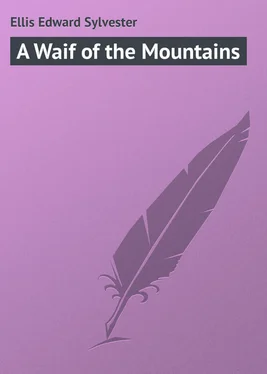


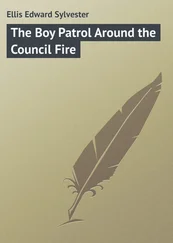



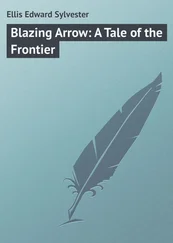
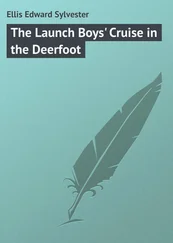
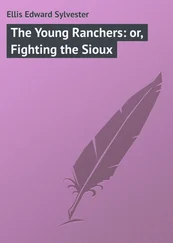

![Edward Ellis - Adrift on the Pacific - A Boys [sic] Story of the Sea and its Perils](/books/753342/edward-ellis-adrift-on-the-pacific-a-boys-sic-s-thumb.webp)
